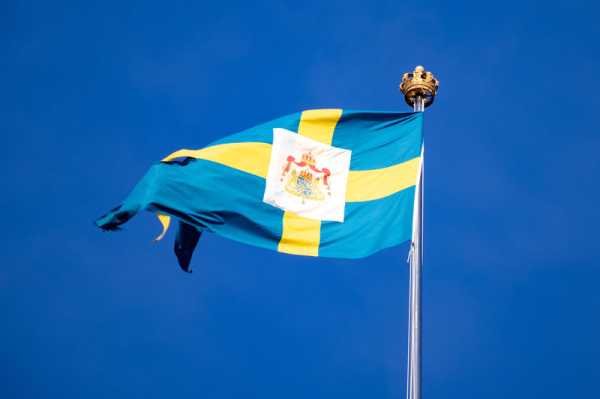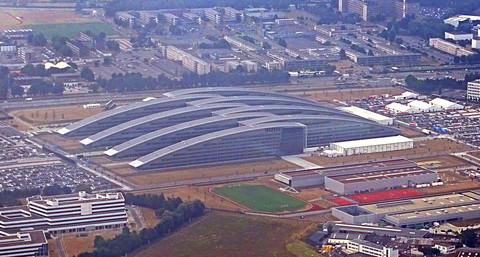
It is not at all certain that Stockholm's attempts to accommodate Turkey without compromising the Swedish constitutional order, will sway Ankara to help finalise Sweden's Nato accession (Photo: LoicDivad)
Many missed the Kremlin’s overt threats in mid-December 2021 against Sweden and Finland.
The two nonaligned countries sit between the Russian Federation and the three original Nordic members of the Nato Alliance — Norway, Denmark and Iceland.
-

The new Nato HQ, on the outskirts of Brussels (Photo: Wikimedia)
But the impact these threats had on Stockholm and Helsinki’s perception of their geostrategic situation, and on several alliance members, should not be underestimated.
By insisting that Sweden and Finland must never join the alliance and subsequently invading Ukraine, Russia’s actions shattered a policy of self-reliance in defence and security affairs that, in the case of Sweden, had lasted since the Napoleonic Wars.
For its part, in 1948, Finland had opted for non-alignment to avoid ending up on the wrong side of the Iron Curtain during the Cold War.
In other words, only part of Swedish and Finnish motives were precipitated by the insecurity felt in the aftermath of Russia’s military aggression.
An equally important reason was the necessity to reassert their sovereignty and show solidarity with geopolitically-exposed Ukraine, following Moscow’s attempt to deny smaller neighbours genuine political agency.
They could hardly have found a more effective way to reject Russia’s power projection than by approaching the alliance with parallel membership bids.
First, Finland…
Now, Finland has joined the alliance after ratification by all 30 member states. This development is good for Finland, for the Baltic Sea region including Sweden, for Europe and the transatlantic Alliance at large.
Finland’s Nato accession promises to stabilise the region and facilitate effective deterrence that can draw on the economic strength and defence forces of almost all market-oriented, democratic and largely well-organised countries in the region.
Sweden’s Nato accession, however, remains on hold.
Curiously, it is not easy to ascertain exactly why Sweden could not enter the alliance on the same day as Finland, given the submission of parallel bids. In accordance with Nato’s criteria-based ‘open door’ policy, both countries were extended invitee status at record speed, at last summer’s Madrid summit.
At that point only the Republic of Turkey expressed reservations and threatened to use its veto.
A trilateral memorandum hastily cobbled together on the eve of the Madrid summit paved the way for invitee status and listed 10 issues for further negotiation, including the relaxing of Swedish and Finnish arms export restrictions, expanded bilateral cooperation on counterterrorism and an accelerated administrative-legal process on extradition cases.
Implementing the memorandum (following Finland’s accession a bilateral agreement) proved unexpectedly challenging for Swedish authorities.
One source of contention is the vague language used in the text, inviting both narrow and extensive interpretations.
Sign up for EUobserver’s daily newsletter
All the stories we publish, sent at 7.30 AM.
By signing up, you agree to our Terms of Use and Privacy Policy.
The process also became more complicated due to political factors: the election campaign in Turkey heating up in mid-2022 and the change of government following Swedish parliamentary elections in September that year. In late 2022, Hungary emerged as a second holdout country, yet without a justification other than that the EU has been withholding funds over rule of law concerns.
Can the outstanding issues be resolved before Nato summit in Vilnius 11-12 July?
Swedish officials say Ankara’s demands have been addressed through several administrative and legal adjustments. Already in 2022, Sweden relaxed restrictions on arms exports for all Nato member states and established a mechanism for close counter-terrorism cooperation with Turkish authorities.
In a few weeks, legislation is expected that will criminalise participation in terrorist organisations and thereby broaden the scope of acts that can be prosecuted.
Judging from repeated statements made by Turkish president Recep Tayyip Erdoğan, though, this may not necessarily satisfy ‘the spirit’ of the June 2022 memorandum, as interpreted by Ankara.
Ever since the Madrid summit, a number of critics of the Turkish government residing in Sweden, in some cases long-time Swedish citizens, have featured in lists of individuals Ankara insists must be extradited to Turkey to face terrorism charges.
Except in a few cases, where allegations by Turkish prosecutors matched crimes according to Swedish law and sound evidence was presented, requests for extradition have not convinced Swedish courts.
Most notably, in December 2022, the case against exiled journalist Bülent Keneş — expressly referred to as ‘terrorist’ by the Turkish president — was thrown out by Sweden’s Supreme Court.
In this matter the hands of the government are now tied, as the constitution does not allow for the executive to interfere beyond a ruling by the country’s highest legal body.
It is not at all certain that Stockholm’s attempts to accommodate Turkey without compromising the Swedish constitutional order, will sway Ankara to help finalise Sweden’s Nato accession.
The outcome of May’s elections in Turkey may or may not influence its position. Hungary’s parliamentary consent seems to be a lesser problem, as the vote was already scheduled (and then rescheduled) several times. But to the extent that the Turkish government remains dissatisfied or prefers to sustain its leverage, this could turn into a stretched-out impasse with repercussions for Swedish and transatlantic security.
Moreover, if Sweden’s full membership is delayed beyond the Vilnius summit, the optics will clearly be bad for Nato and the values it wants to represent. Instead of living up to the ‘open door’-policy and welcoming a country that qualifies under the collectively established criteria, the alliance will have left Sweden—with its nonalignment stance of two centuries abandoned—stuck in the doorway.
Source: euobserver.com



